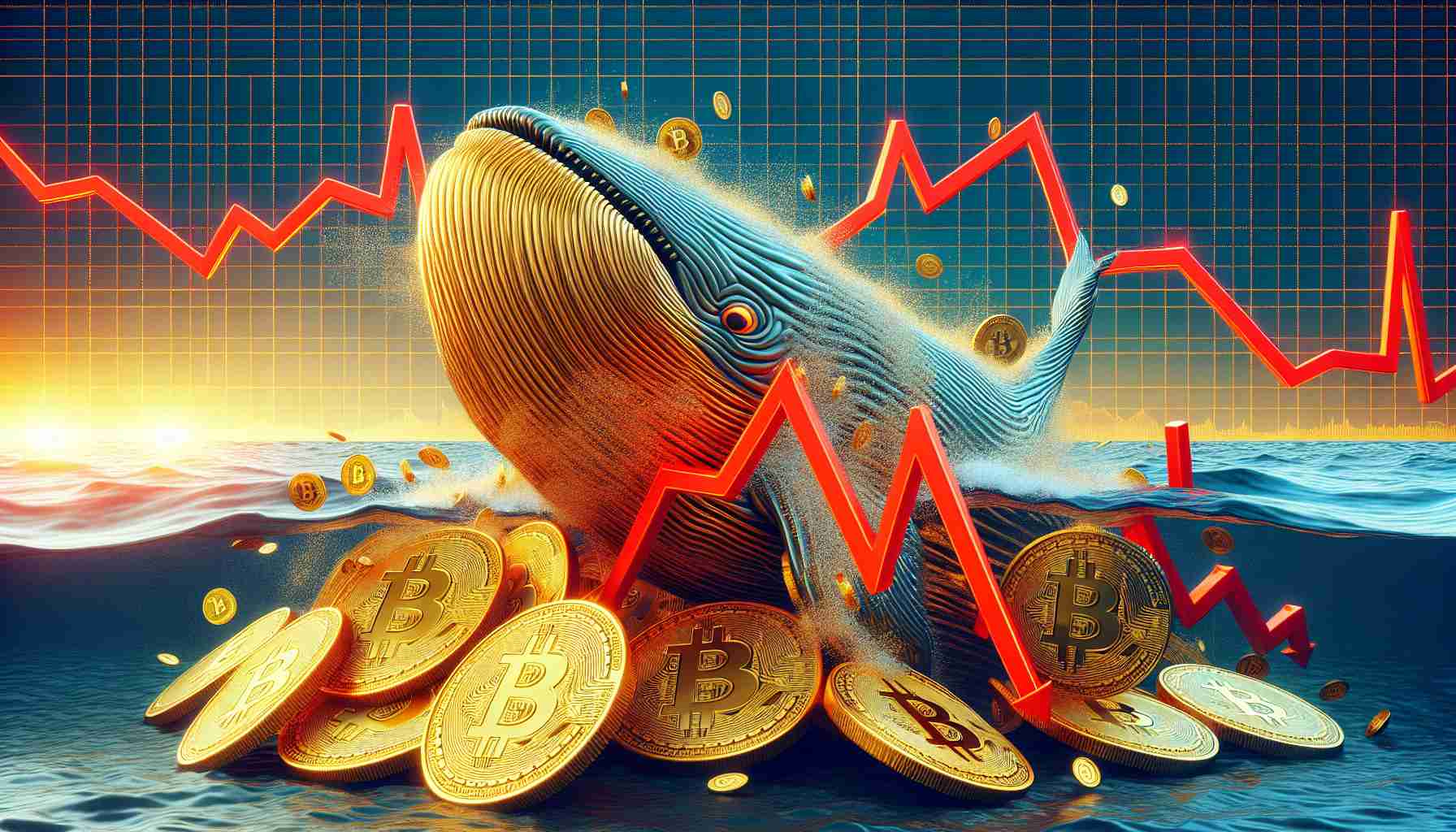In the dynamic landscape of cryptocurrencies, Bitcoin whales exhibit caution against the volatile market. This change in whale behavior is marked by a shift in the Bitcoin Inter-Exchange Flow Pulse (IFP), which serves as a barometer for the flow of Bitcoin between spot and derivatives exchanges.
The IFP has turned red, indicative of a slowdown in the migration of Bitcoin from spot markets to riskier derivatives trading platforms. This trend suggests that prominent investors or ‘whales’ are bracing for possible turbulence by reducing their exposure to derivative products. Normally, an uptick in the IFP would imply a heightened interest in opening new derivative positions, potentially driving up market risk.
Recent data illustrate a downward trend in the IFP, which has even dipped below its 90-day simple moving average—often a signal of a potential sentiment shift among the market’s largest players. Such a bearish crossover historically aligns with periods of market downturns, as seen in the past correlations with bear market conditions in 2018 and 2022.
While this bearish trend may suggest an upcoming phase of market consolidation or downturn, it’s important to note that similar past occurrences did not always lead to prolonged bearish markets. The Bitcoin market has shown resilience in the past, with downturns often followed by recovery and new highs.
Despite this analytic tool signaling reduced risk appetite amongst major investors, the ultimate direction of the Bitcoin market remains uncertain. Bitcoin presently trades at a lower point, leaving the broader cryptocurrency community watching closely to see how these whale movements might influence the market’s next phase.
Bitcoin whales and their market influence are widely discussed in the cryptocurrency community because their large holdings can have significant impact on the market. When whales move their assets, they tend to show trends or sentiment shifts in the market due to their substantial effect on liquidity and market dynamics. As they adjust their risk exposure on derivatives exchanges, the broader market often takes cues from these actions.
It’s important to address why whales might reduce their risk on derivatives exchanges. Derivatives, such as futures and options, can be complex financial instruments that often involve leverage, which can amplify gains but also losses. The caution exhibited by Bitcoin whales could be due to various indicators of increased risk or potential instability in the market. It may also reflect a more general trend of risk aversion in broader financial markets or specific macroeconomic factors that affect investor sentiment.
Another critical aspect is understanding the key challenges associated with Bitcoin and cryptocurrency derivatives. Regulatory uncertainty is one such challenge, as the legal framework for these types of instruments is still developing in many jurisdictions. Additionally, the complexity and inherent risks associated with derivatives can be a barrier to entry for less experienced traders.
Controversies in the realm of Bitcoin and cryptocurrencies often revolve around market manipulation, with allegations that some whales might use their positions to move the market in their favor. The lack of transparency and regulatory oversight in cryptocurrency markets compared to traditional financial markets can exacerbate these concerns.
Discussing advantages and disadvantages is also crucial. The presence of whales can be a double-edged sword. On the one hand, they provide much-needed liquidity and can be a signal to other investors about market trends. On the other hand, they can also create volatility and uncertainty for smaller investors due to the potential for large, unanticipated swings in the market caused by their activities.
For those interested in further research or staying updated on the dynamics of cryptocurrencies, they might wish to visit CoinDesk or Cointelegraph, which are reputable sources for news and analysis in the cryptocurrency space. These links lead to the main domains, which provide a plethora of information on market trends, regulatory developments, and educational resources on cryptocurrencies.
In summary, as Bitcoin whales exhibit caution, the market reflects their sentiments through various indicators like the IFP. The ultimate effect of their maneuvers remains to be seen, but their actions unquestionably carry weight in the cryptocurrency landscape. Risk management, regulatory clarity, and market resilience continue to be vital discussions in this arena.



